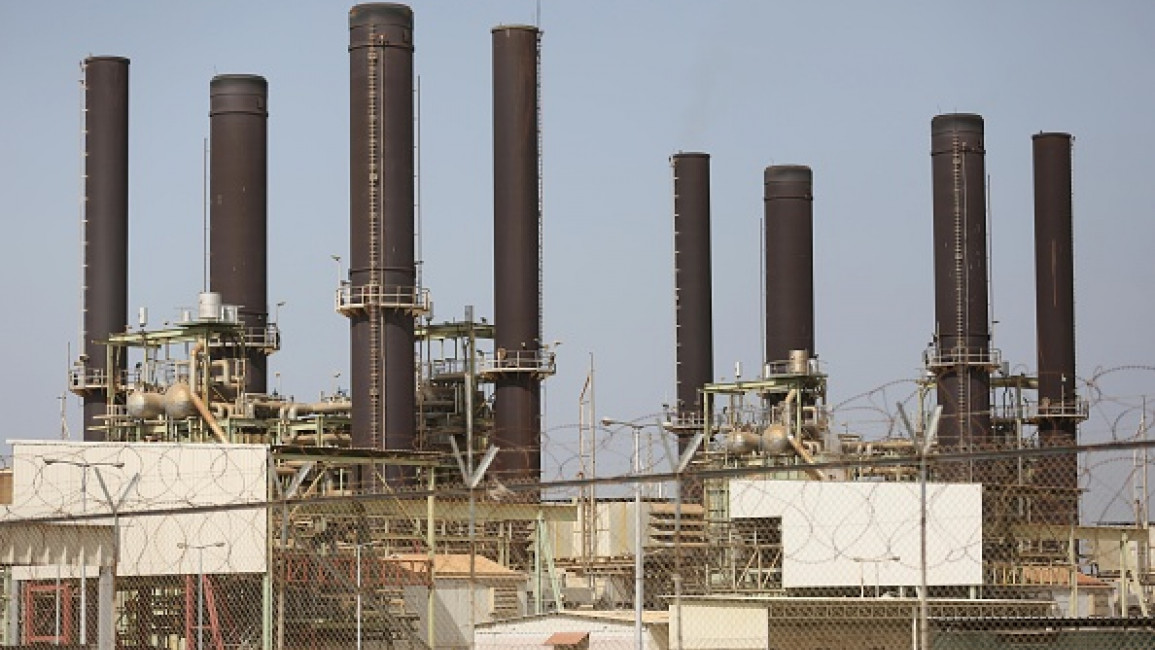As temperatures rise, Palestinians in Gaza launch campaign against ongoing power cuts
In the besieged coastal enclave, local activists launched an online campaign against the only electricity plant on the territory because of the power shortage amid the heat wave hitting the Gaza Strip.
Under the hashtag "Fourth turbine", the campaign has become widespread among residents suffering from a scorching summer season.
Since the beginning of July, specifically in light of rising temperatures, residents in the Strip have taken to social media platforms to vent great anger about the hours-long power cuts.
Thousands of posts were published on platforms like Twitter, Facebook and Instagram, depicting photos of children and older adults struggling without electricity against a brutal heat wave.
"The campaign aims at encouraging our people to raise their voices against the local authorities, ruled by Hamas, and the owners of the electricity company in Gaza, who are not caring about the people suffering during the heat summer season," Mustafa Abul Hady said to The New Arab.
Abdul Ati added, "We already have suffered from electricity shortage for more than 15 years without any optimism to solve this crisis."
According to Abdul Hady, what made the matter worse was that Palestinian officials did not care about finding a solution to the problem.
"[Officials] only want to trade with our own suffers. They collect money from Qatar, UNRWA, and Western countries to raise only their fortunes," Haya al-Ashy, a Gaza-based resident, remarked to TNA.
The 25-year-old said, "Since 2018, there has been a Qatari grant of US$10 million paid for the benefit of the Palestinian people, and the Palestinian Authority pays the electricity bill collected and comes to the Strip. Why does the Electricity Distribution Company not pay the tax it collects to operate the fourth generator?"
"We have a problem with high temperatures, and we demand the operation of the fourth generator as a humanitarian case, especially since after putting up the (hashtag) on social media, it was discovered that there is a fifth and sixth generator, while the generating station is capable of producing 120 megawatts and not just 60," she added.
She stressed that "the electricity problem has become unacceptable in the Gaza Strip, and it is illogical and must be solved."
"It is inconceivable that when we talk to the Energy Authority, they tell us that in 2029 we will supply gas to the station to give us 500 megawatts, while Gaza, after six years, will need 1,000 megawatts," she concluded.
Since the Israeli blockade was imposed on the territory in 2007, Palestinians in Gaza have experienced continuous power outages daily. Electricity cuts during autumn and spring last for around 8 hours, while during summer and winter, outages could reach up to twelve hours.
"It was the summer heat wave that provoked and showed the deficit more," Jalal Ismail, head of the Energy Authority in Gaza, told TNA.
"We are for the energy authority to have the ability to operate the fourth generator," he said, stressing that "even the four turbines in the station are not ready to operate for a full month, and they need maintenance work from time to time."
"The ignition of the fourth generator will not cover the existing deficit because it will produce only 20-25 megawatts, in light of the high temperature, and it will reduce a small part of the electricity deficit," he added.
He stressed that "as an energy authority, we seek to increase renewable energy sources because they can fill the gaps in the energy deficit, and there are deliberations with the Egyptian side to increase the quantities of energy, especially the 40 megawatts, within the framework of solutions."


![A Palestinian girl stands amid the rubble of her destroyed home on 24 May 2021 in Beit Hanoun, Gaza. [Getty]](/sites/default/files/styles/image_330x185/public/2021-06/GettyImages-1233090336.jpg?h=a4507e6b&itok=eFmdLkDh)
